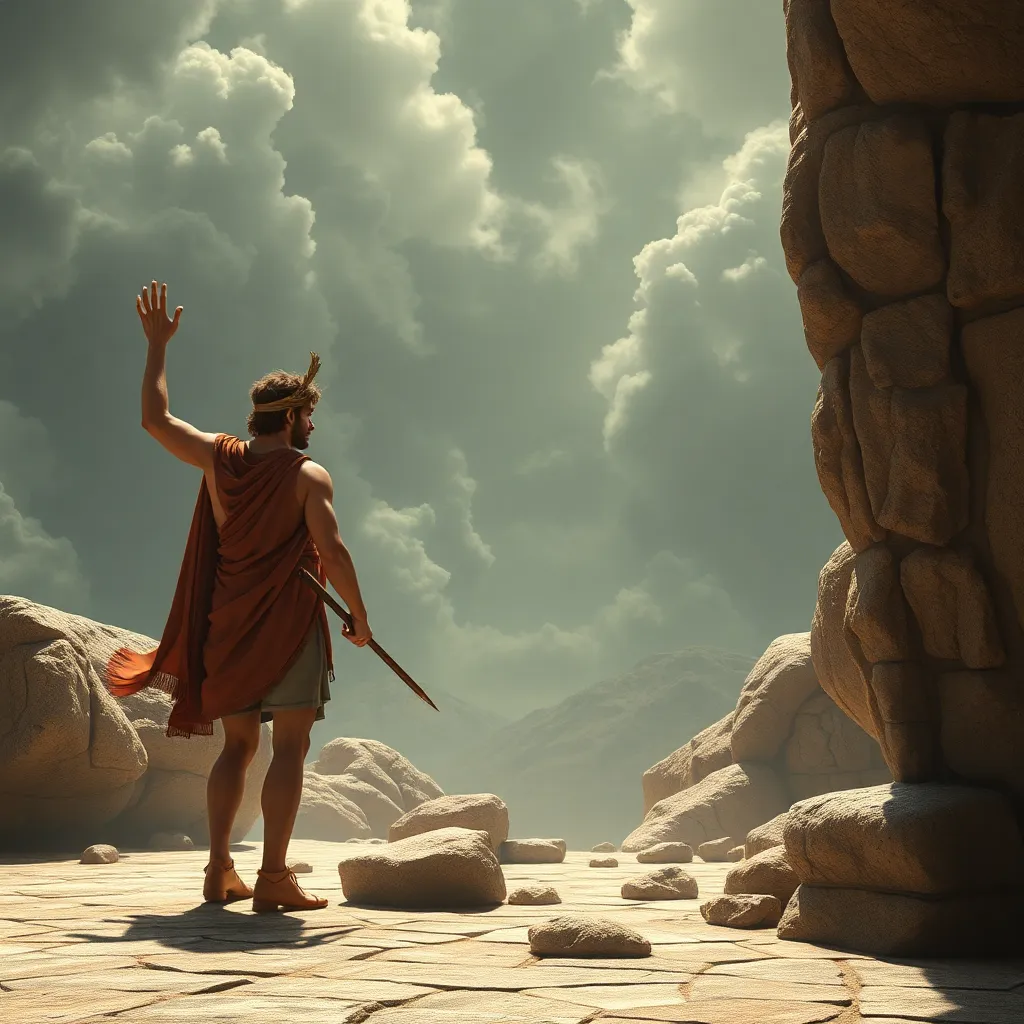The Role of the Epic Hero in The Odyssey: Defining Characteristics
I. Introduction
“The Odyssey,” attributed to the ancient Greek poet Homer, is a foundational work of Western literature that tells the story of Odysseus’s long and perilous journey home after the Trojan War. It explores themes of heroism, loyalty, and the struggle against adversity. The epic not only entertains but also imparts moral lessons and reflects the values of its time.
At the heart of this narrative is the concept of the epic hero. An epic hero is typically characterized by extraordinary qualities and a noble purpose, often facing daunting challenges that test their limits. This article aims to explore the defining characteristics of the epic hero, particularly through the lens of Odysseus in “The Odyssey.”
II. Historical Context of Epic Heroes
The origins of epic literature can be traced back to ancient Greece, where storytelling served as a means of preserving history, culture, and values. Epic heroes were often celebrated figures, embodying the ideals of strength, bravery, and honor.
In Homeric society, heroic ideals were significant as they reflected the values of loyalty, courage, and personal honor. Heroes were expected to strive for glory and to protect their families and communities.
When compared to other epic heroes in literature, such as Gilgamesh from “The Epic of Gilgamesh” or Aeneas from “The Aeneid,” Odysseus stands out for his complexity. While he shares certain traits with these heroes, his reliance on intellect and emotional depth offers a unique portrayal of heroism.
III. Odysseus: The Archetypal Epic Hero
Odysseus, the protagonist of “The Odyssey,” is often regarded as the archetypal epic hero. His journey of ten years to return to Ithaca is fraught with numerous challenges, including encounters with mythical creatures, temptations, and supernatural beings.
Throughout his journey, Odysseus demonstrates resilience and adaptability, qualities that are essential to his character and the narrative’s progression. His importance lies not only in his physical adventures but also in his emotional and psychological development as he confronts his fears, desires, and responsibilities.
IV. Defining Characteristics of Odysseus as an Epic Hero
Odysseus embodies several defining characteristics that solidify his status as an epic hero:
- Bravery and Courage: Odysseus faces perilous situations, such as battling monsters like the Cyclops and navigating treacherous waters. His bravery inspires his crew and demonstrates his commitment to overcoming adversity.
- Intelligence and Cunning: Unlike many traditional heroes who rely solely on physical strength, Odysseus often uses his wit to outsmart opponents. His famous ruse of the Trojan Horse exemplifies his strategic thinking.
- Leadership Qualities: Odysseus assumes the role of a leader throughout his journey. He takes responsibility for his crew, guiding and protecting them despite the challenges they face.
V. The Role of Fate and Divine Intervention
In “The Odyssey,” the influence of the gods plays a crucial role in Odysseus’s journey. Deities such as Athena and Poseidon have a significant impact on the outcomes of his adventures, providing assistance or creating obstacles.
This interplay raises questions about fate versus free will. While Odysseus demonstrates agency in his choices, the narrative suggests that divine intervention shapes his path. The gods’ support often reflects their favor towards him, while their opposition highlights the unpredictability of life.
Ultimately, divine assistance not only aids Odysseus in his quest but also enhances his status as a hero, illustrating the belief that true heroism requires both human effort and divine grace.
VI. The Hero’s Flaws: Humanizing Odysseus
Despite his heroic qualities, Odysseus is not without flaws. His weaknesses and mistakes contribute to his humanity and character development:
- Hubris: Odysseus often displays pride, particularly when he reveals his identity to the Cyclops, which leads to dire consequences for him and his crew.
- Temptation: His encounters with the Sirens and Circe illustrate his struggles with temptation and desire, showcasing his vulnerability.
- Impatience: At times, his impatience leads to rash decisions, impacting the journey’s progression and the well-being of his crew.
These flaws are essential for his development as a hero, allowing readers to relate to him on a deeper level and understand the complexities of human nature.
VII. The Impact of Odysseus’s Heroism on Others
Odysseus’s journey profoundly affects those around him, including his family and crew:
- Family: His absence creates a sense of longing and loyalty in his wife, Penelope, and son, Telemachus, who both wait for his return. Their struggles reflect the emotional toll of his heroism.
- Crew Dynamics: Odysseus’s leadership influences the loyalty and morale of his crew. Their fates, often tragic, highlight the heavy burden of his responsibilities.
- Legacy: The stories of Odysseus’s adventures inspire others in the narrative, leaving a lasting impact on the cultural memory of heroism.
This exploration of loyalty and betrayal enriches the narrative, emphasizing the interconnectedness of heroism and human relationships.
VIII. Conclusion
In summary, Odysseus exemplifies the defining characteristics of an epic hero through his bravery, intelligence, leadership, and human flaws. His journey in “The Odyssey” resonates with themes of resilience, morality, and the complexities of the human experience.
The relevance of Odysseus’s heroism continues to inspire contemporary discussions about character and morality. His story serves as a reminder of the enduring nature of human struggles and triumphs.
As we reflect on the legacy of “The Odyssey,” it is clear that Odysseus remains a timeless symbol of heroism, embodying qualities that resonate deeply across cultures and eras.




